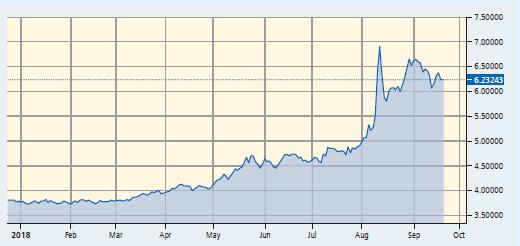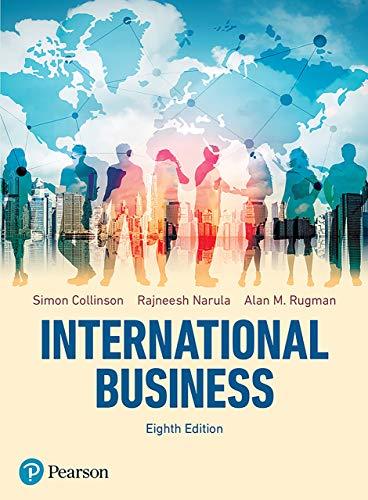The Turkish economy was performing rather well in 2017 as the nation exceeded forecasted levels of growth.
Question:
The Turkish economy was performing rather well in 2017 as the nation exceeded forecasted levels of growth. For instance, in the third quarter of 2017 GDP levels were 11.1 per cent higher in comparison with the third quarter of 2016. Moreover, the rate of growth during this period was 5 per cent higher than the three previous quarters and the nation seemed to be on track to generate an impressive 7 per cent growth for the entirety of 2017. This prosperity was reflected in the opening of multiple new shopping centres throughout the country, as consumers seemed to have healthy levels of disposable income. However, this dramatically changed in 2018 and the upbeat mood of consumers within Turkey quickly changed as they found themselves in difficult times amid the start of the 2018 Turkey currency crisis.
The lira, the currency in Turkey, hit a record low in 2018 and created many obstacles for the nation as prices for everyday items increased on a regular basis. Thousands of businesses in Turkey were somewhat involved in foreign currency loans to fund their investments. However, in 2018 the lira lost approximately 40 per cent of its value against other currencies such as the dollar; Figure¤ 4.2 illustrates the currency exchange rate between the US dollar and the Turkish lira.
This depreciation resulted in difficult times for Turkish organisations as it was more expensive to purchase goods and services, or repay debts, that were in foreign currencies such as euros and dollars. Given this, Tayyip Erdogan, the Turkish President, announced in September 2018 that there would be a ban on using foreign currency for a large range of different contracts. This created chaos in many organisations
as firms were given a 30-day deadline for converting their existing foreign currency contracts and agreements into Turkish lira. Despite some advantages, for example, tourism increased by 60 per cent due to travellers being able to take advantage of their strong foreign currencies, the situation looked rather bleak for the Turkish nation.
There are lessons to learn from Turkey’s currency crash, particularly in terms of the way in which many of the economic activities in one country are connected and often dependent on those in other countries. This can be through cross-border supply chains and trade links or the movement of money (inward and outward investment) or people (such as tourists). Experts suggest that there were a number of factors contributing to the decline of the lira. First, investors were concerned that Turkish companies had simply borrowed too much following the construction boom in 2017 and subsequently struggled to repay loans in foreign currencies, as repayments were significantly higher than initially anticipated. Second, the relationship between Turkey and the US was fairly negative. This was partly due to the detainment of American pastor, Andrew Brunson, placed under house arrest

in Turkey over terrorism charges, resulting in a bitter dispute between Washington and Ankara. US retaliation, led by Donald Trump, took the form of new trade tariffs, particularly on imports of steel and aluminium from Turkey. Third, and more generally, Erdogan and the government were blamed for poor national economic management. The central bank did not have independence in setting interest rates, which is one economic lever that should not be politically manipulated. In a clear case of political nepotism, Erdogan also put his son-in-law in charge of Turkey’s economic policy in 2018.
High levels of foreign currency loans coupled with the political landscape undoubtedly played a vital role in the devaluation of the lira. More recent events, including the release of the detained US pastor, have triggered a rally in the value of the lira, but politics and economics still make for a complex and unstable mix in Turkey.
Step by Step Answer:

International Business
ISBN: 9781292274157
8th Edition
Authors: Simon Collinson, Rajneesh Narula, Alan M. Rugman





